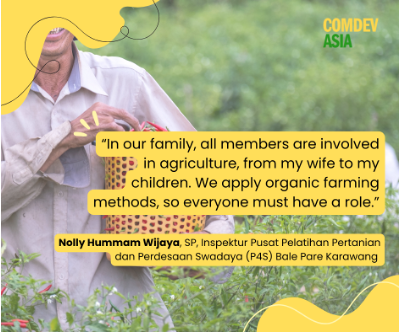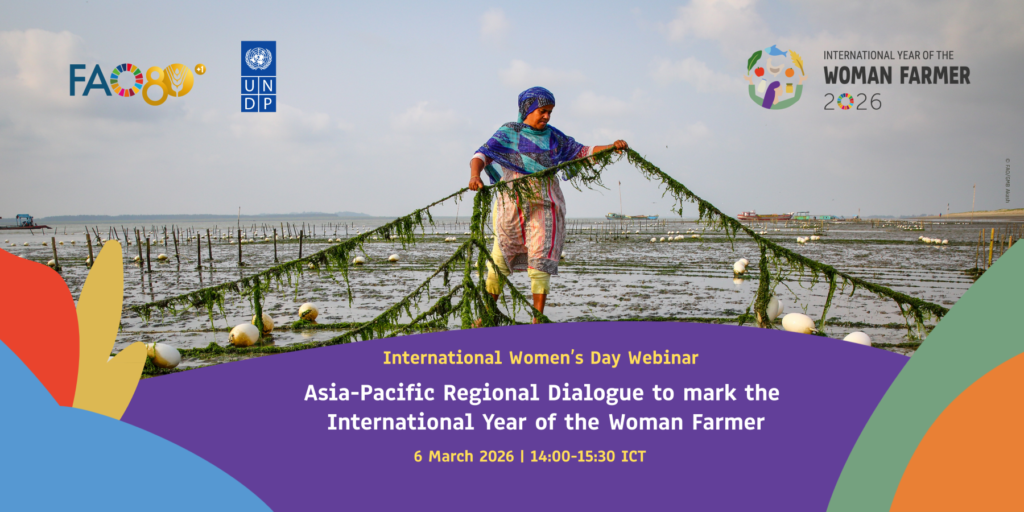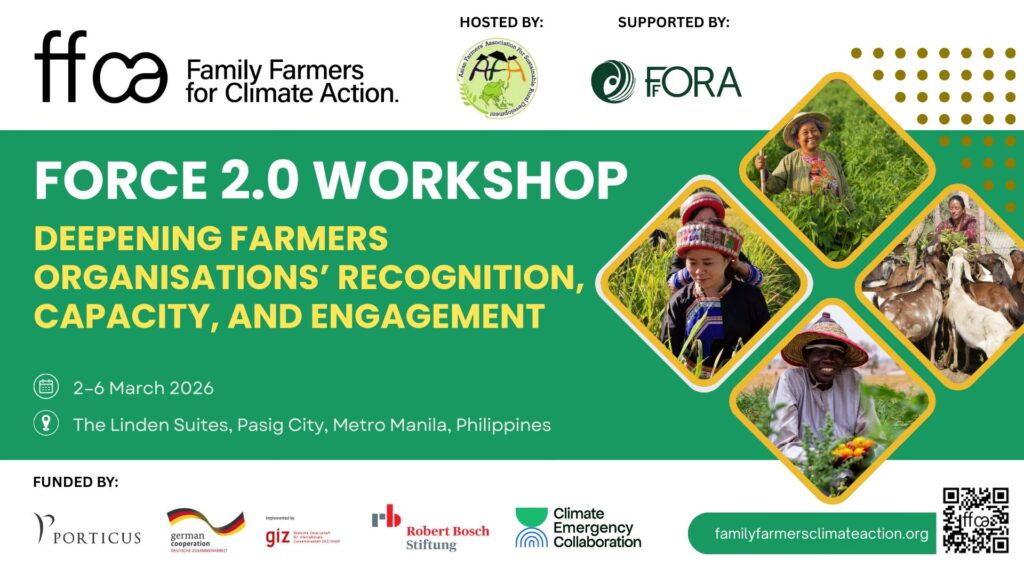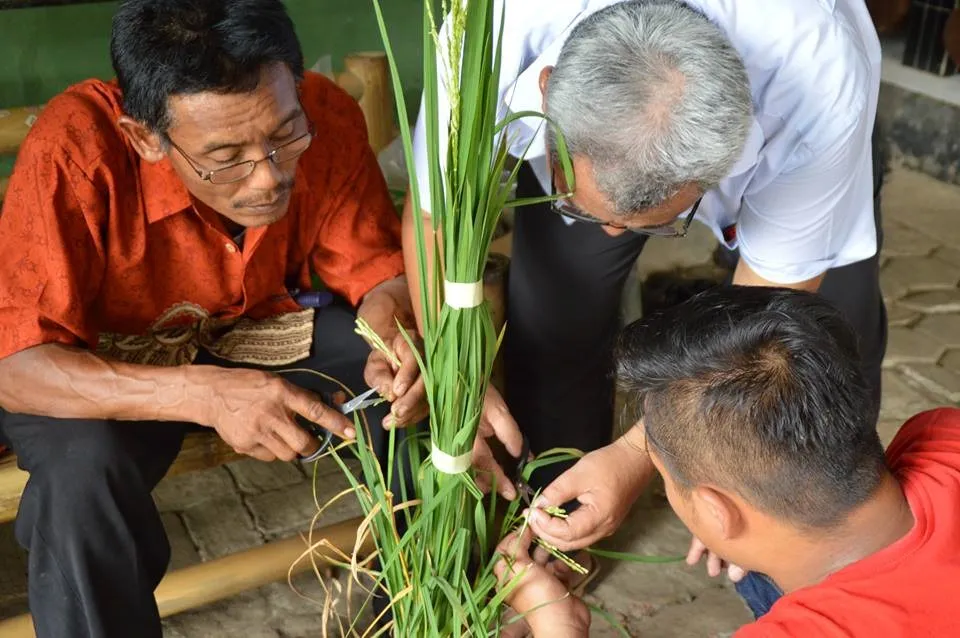
Family Farming promotes ecological balance, strengthens family bond in Indonesia
Pusat Pelatihan Pertanian dan Perdesaan Swadaya (P4S) Bale Pare Karawang Inspector Nolly Hummam Wijaya talks about responsible family farming in the first episode of NH Radio’s rural radio program.
P4S Bale Pare Karawang is a non-governmental organization (NGO) that advocates for sustainable agriculture in Indonesia through the balance of agricultural inputs and ecological conservation [1]. Through the program, Wijaya shares the family farming practices they implement and how others can follow suit.
Agriculture plays an important role in the Indonesian economy which makes up 14% of the country’s GDP. Over 93% of agriculture-related economic activities take place in Indonesia’s small family farms, indicating that family farms contribute significantly to economic development and food security in the country [2].
“In our family, all members are involved in agriculture, from my wife to my children. We apply organic farming methods, so everyone must have a role,” Wijaya explains.
In their farm, Wijaya is in charge of the major management decisions, while his wife carries out composting practices and oversees the marketing of their products, and their children help with maintaining their small garden.
Wijaya emphasized the importance of involving his whole family in their farm as this helps in continuity of business management and imparting valuable knowledge to his children. Wijaya said that he began involving his children in their farm from childhood, starting with watering and planting vegetables. Presently, they are learning more advanced farming techniques through their small garden.
Wijaya chose to practice organic farming because it helps them conserve the quality of the soil while reducing the need for chemical fertilizers. They create their own compost from organic wastes, including kitchen scraps which is also a good waste management practice.
Aside from its environmental benefits, Wijaya remarked that organic farming helps them produce healthier plants that are in demand with consumers who prefer organic products.
Wijaya’s family serves as a prime example of how the involvement of all family members in agriculture can benefit the farm, the environment, and the community. Through this program, Wijaya and his family can serve as an inspiration to other family farms.
This rural radio initiative is a collaborative project by AMARC Asia-Pacific and ComDev Asia and produced locally by NH Radio 107.9 and the Far East Broadcasting Company. It is supported by the United Nations’ (UN) Food and Agriculture Organization (FAO) for the UN Decade of Family Farming (UNDFF).
To learn more about other farming practices in Indonesia and the Asia Pacific region, visit the ComDev Asia website and listen to other Rural Radio Initiative episodes.
(This article is written by Xchaina Amo, ComDev Asia)
References:
[1] Pusat Pelatihan Pertanian dan Perdesaan Swadaya. (2011, January 10). Bale Pare Karawang. P4S Bale Pare Pertanian Organik Karawang. P4S Bale Pare Pertanian Organik Karawang
[2] United Nations’ Food and Agriculture Organization. (2022). Family Farming in Indonesia. Family farming in Indonesia



